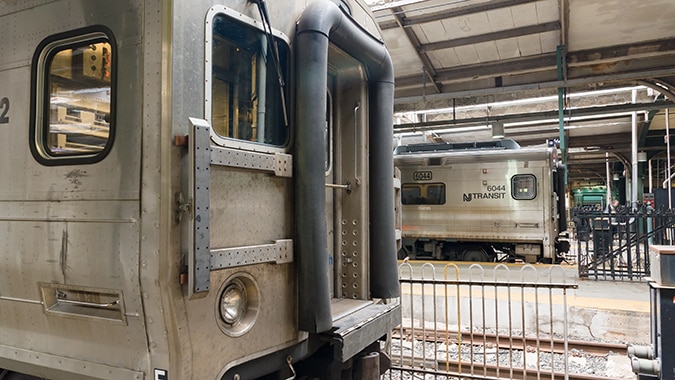NJBIA President & CEO Michele Siekerka urged NJ TRANSIT and its train engineers to avert a potential strike next month by agreeing to a reasonable contract that is sustainable for New Jersey’s taxpayers, commuters, and businesses.
Last week, the members of Brotherhood of Locomotive Engineers and Trainmen overwhelmingly voted to reject the tentative contract that its leaders had reached with NJ TRANSIT in March, setting in motion the potential for a strike at 12:01 a.m. May 16.
“A rail strike would be bad for the economy and for job creators, so we urge NJ TRANSIT and the union to continue their efforts to reach an agreement that is reasonable and sustainable for New Jersey's taxpayers, commuters and employers," Siekerka said.
Siekerka noted that New Jersey’s largest employers, through the Corporate Transit Fee created last year, have been taxed $1 billion to keep transit moving in this state and will be paying an estimated $815 million in subsequent fiscal years through Dec. 31, 2028.
“NJ TRANSIT said the latest salary demands would necessitate a 27% increase in the Corporate Transit Fee, which is clearly something that New Jersey’s highly taxed job creators cannot afford,” Siekerka said.
Under the tentative deal rejected by the union’s rank and file, locomotive engineers would have been earning wages that are competitive within the region, Siekerka noted.
The train engineers’ last contract with NJ TRANSIT expired in 2019. Bargaining teams for the union and NJ Transit signed a tentative deal March 6, but it required ratification by union members and approval by NJ TRANSIT’s board.
The union announced April 15 that 87% of the engineers had voted no. Turnout was high with 427 of the 460 locomotive engineers (93%) eligible to vote casting ballots.
NJ TRANSIT is the nation’s third largest provider of bus, rail, and light rail transit by ridership. A strike would affect hundreds of thousands of commuters, including bus riders who will experience overcrowding and longer commute times if trains are not running.
NJ TRANSIT has said it does not have bus capacity to replace all displaced railroad riders, so a strike would also cause significant traffic congestion on highways as rail commuters use their vehicles to get to work instead.
The last railroad strike against NJ TRANSIT was in 1983. A potential strike was narrowly averted in 2016 when a contract was reached hours before the strike deadline.




